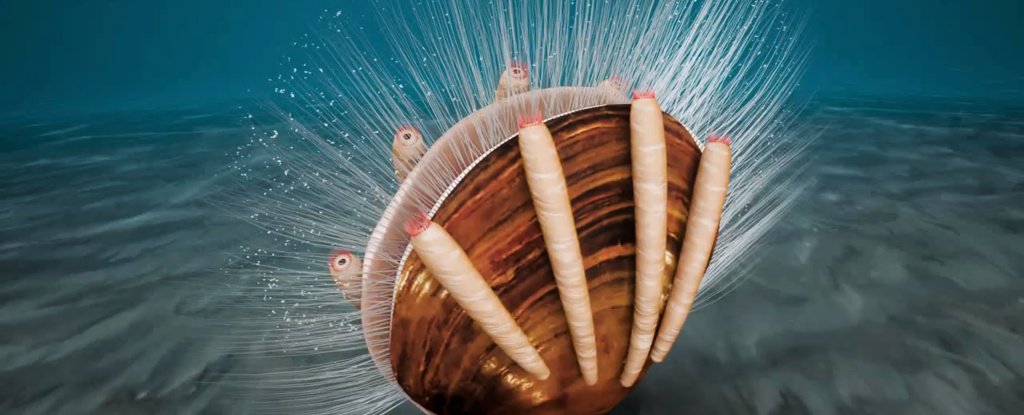
Although parasites are common in modern ecosystems, we actually know little about parasitism in the distant past.
In the case of parasitism, the parasite always benefits while the host is harmed.
It's often difficult to demonstrate a suspected fossil parasite was actually exploiting a host.
Also, many parasites that live inside a host – including bacteria and viruses – are unlikely to be fossilised as they often decompose too quickly to be preserved.
We know the worms were parasites because we identified a clear negative effect on the host, as brachiopods without parasites grew larger than those with them.
While the parasites in question were almost certainly worms, we don't know exactly what type of worm.
Based on the orientation of the tubes, we also know the worms were kleptoparasites, meaning they stole food from the host before it could be ingested.
Other remarkable discoveries of parasites in the fossil record include spiral-shaped bacteria, almost identical to the bacteria responsible for Lyme Disease, discovered inside a 15 million-year-old fossil tick entombed in amber.
"Tongue worms" (Pentastomida), a parasite still found today, have a fossil record stretching back hundreds of millions of years.
And many parasites that live inside a host are capable of surviving without a host at least part of the time.
We know parasitism has evolved multiple times, and almost every animal group includes one or more parasites.
